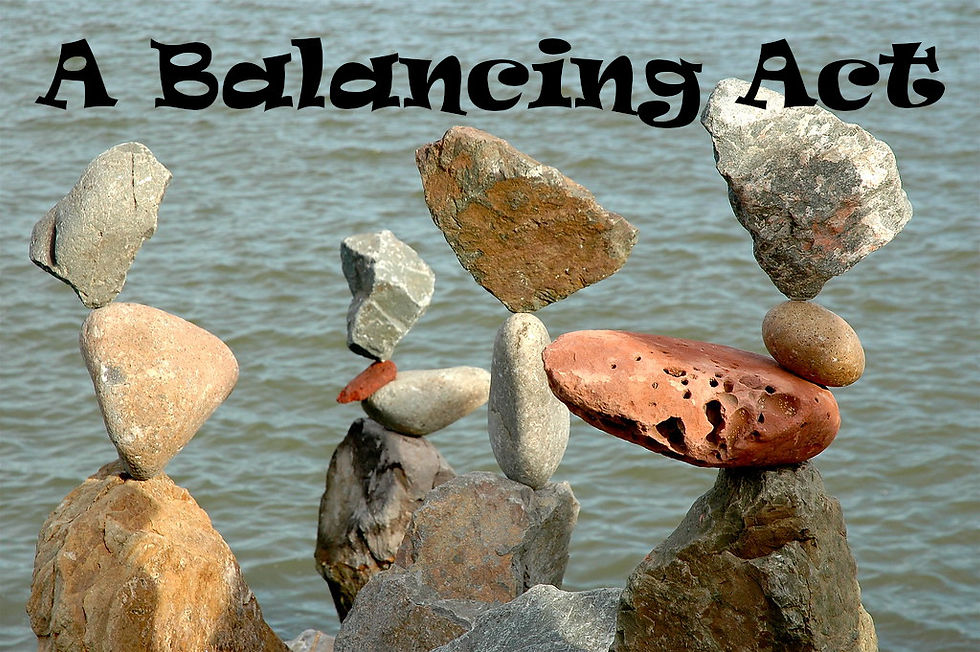A Balancing Act
- revgregorynbaker
- Apr 17, 2024
- 3 min read

Scripture: Jeremiah 30:17 – “For I will restore health to you, and your wounds I will heal, says the Lord, because they have called you an outcast: ‘It is Zion; no one cares for her!’”
Is our God a God of love or wrath? Most people would say that God loves us and forgives us. God wishes the best for us. But to many, this loving God is empty. If God just loves us no matter what we do, our faith makes very little difference in the world. It is just a comforting self-affirmation. If God does not matter, there is no need for faith. However, if we say that God is wrathful and condemns us, we tend to extend that wrath more to people we don’t like, which can lead to all sorts of hatred and violence. This also drives people away from faith, if the faithful can act so evil.
However, if we look at the stories of the Old Testament, we can see how God’s wrath and mercy interconnect. Israel is God’s chosen people, and they are loved and blessed by God. However, they took this love for granted and acted just like all the other nations. When the stronger nations abused and conquered Israel, they saw this as just punishment for their sins. However, no matter how much destruction came to Israel, God never abandoned them. The prophet Jeremiah preached in the days when Jerusalem was destroyed by the Babylonians. He spoke of God’s wrath upon the nation and its kings, and was persecuted and silenced for it. Despite his physical and emotional suffering, Jeremiah endured. But when his predictions about destruction proved correct, he did not say, “I told you so!” Instead, he preached of God’s love and forgiveness. Even though Israel would be taken into exile, God promised they would return and be restored to abundance.
We can take several lessons from this. The first is that God fulfills promises. If God promises restoration, there will be restoration. If God chooses Israel, they will not be abandoned. The second is that there must be accountability. Israel still faces the consequences of their actions. They do not get off the hook. But God still allows for restoration in the end. This is the balance between love and wrath that people often forget. God wants us to be holy and is angered by our selfishness, but God forgives, for it is through forgiveness that we can become the righteous people we are meant to be. Hope through accountability.
The third reason is that God favors the underdog, something that theologians call the “preferential option for the poor.” God forgives Israel not just because of love, but because of compassion. Jeremiah preaches, “You wounds I will heal, says the Lord, because they have called you an outcast.” We face the consequences of our actions, but God is especially loving to those who suffer because of the deeds of others.
God’s mercy in the face of judgment is, of course, personified by Jesus Christ, who takes away the sins of the world. Being a Christian means finding a balance between worshiping a loving God and a wrathful one. But it is a difficult balance to maintain. Think about your own life. Has your faith in God’s loving kindness being used as an excuse to ignore God’s commandments? Has your anger over the sinfulness of the world made you think less of other people? Pray upon which of these things might be tempting you this week and remember that in our times of selfishness and service, God is always with us.
Prayer: Lord, help me respect your justice and you love in equal measure. Amen.




Comments